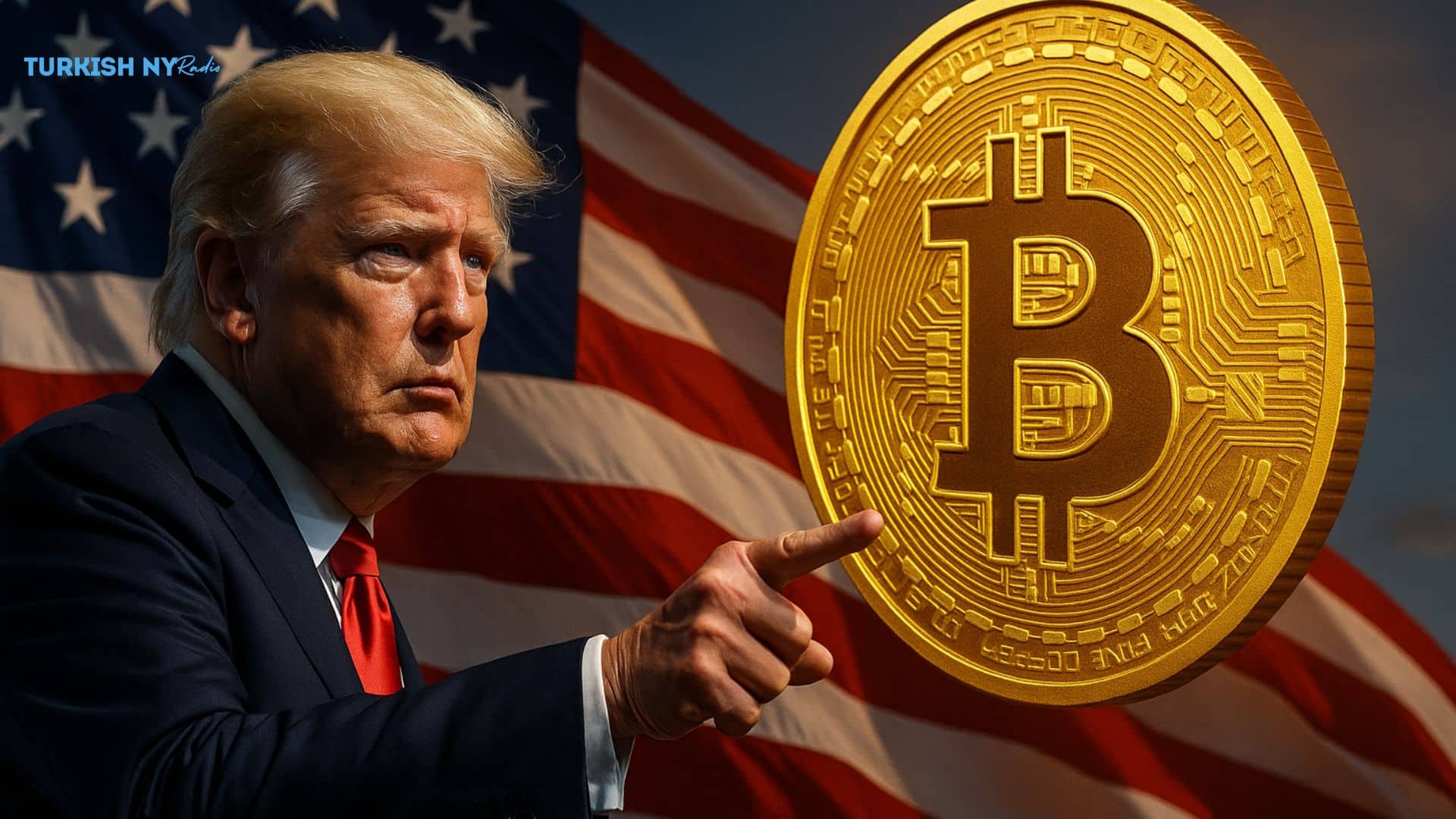Donald Trump has renewed his call for the United States to lead the global cryptocurrency revolution. Speaking at the America Business Forum in Miami, he outlined his vision to establish the U.S. as the Bitcoin superpower.
The newly announced Trump crypto policy emphasizes freedom, innovation, and competition, with Trump declaring that Washington's "war on crypto" is over.
Trump Moves to Ease Federal Grip on Crypto
The Trump crypto policy aims to shift from strict regulation to actively supporting blockchain growth. Trump stated he has signed executive orders to end federal hostility toward the cryptocurrency sector, asserting, "Crypto was under siege. It's not under siege anymore."
He described the industry as substantial, talent-rich, and crucial for the nation's future. Trump's administration's mission, he explained, is to embrace crypto, support American investors, and foster innovation.
Ending the War on Crypto
Trump framed his plan as a significant turning point, marking the end of federal aggression against the digital asset sector. He stated that the government will now act as a partner rather than an adversary.
He attributed the previous administration's actions to creating market fear, criticizing, "Biden was vicious on crypto. They were going after these crypto guys." His remarks were met with applause from the business leaders present.
Tying Crypto to U.S. Strength
Trump suggested that cryptocurrency could bolster the U.S. dollar and safeguard the economy. The Trump crypto policy views digital assets as a complementary force to traditional finance. "It takes a lot of pressure off the dollar," he explained.
He noted that many trusted business leaders are involved in crypto, recognizing it as a significant industry that spans multiple business sectors. Trump's statements indicate he sees crypto not as a threat, but as a strategic advantage for the U.S.
Global Race for Crypto Dominance
The Trump crypto policy also addresses the global competition in the digital asset space. Trump warned that if the United States does not lead, other nations will. "China wants to do it. Other countries want to do it. If we don't do it properly, it's a big loss," he stated.
He emphasized the urgency for the U.S. to act swiftly to maintain its global leadership in blockchain and digital finance, framing crypto as a tool for national power and economic independence.
Strategic Bitcoin Reserve and Legal Moves
The White House, under Trump's direction, has initiated early steps for its crypto policy. This includes establishing a Strategic Bitcoin Reserve and a U.S. Digital Asset Stockpile, utilizing coins obtained from government seizures and forfeitures.
The GENIUS Act, signed on July 18, provided legal clarity for stablecoins and prohibited the development of a U.S. central bank digital currency. These actions align with Trump's broader strategy to promote private innovation over central control within the crypto space.
Market Trends and Trump’s Bitcoin Holdings
Trump's endorsement of cryptocurrency appears to be both political and personal. Forbes reports that he holds approximately $870 million in Bitcoin, positioning him as one of the world's largest individual holders.
His substantial stake reinforces his message, demonstrating personal investment and confidence in blockchain technology as a foundation for his crypto policy.
Meanwhile, the global cryptocurrency market remains volatile, with the total market capitalization below $4.5 trillion. Bitcoin has recently seen a decline below $100,000, influenced by trade tensions between the U.S. and China and the high valuations of AI stocks.
Crypto, AI, and America’s Future
Trump has linked his crypto policy with the burgeoning field of artificial intelligence, asserting the U.S.'s undisputed leadership in AI. He views the integration of crypto and AI as the next phase of American development.
His reasoning suggests that the combined power of these two technologies could drive innovation, enhance privacy, and strengthen the U.S. position globally.
Conclusion
The Trump crypto policy signifies a substantial shift in Washington's approach to digital assets, advocating for liberty, economic power, and patriotism. Trump has clearly communicated that the U.S. must lead or risk falling behind.
By opposing a central bank digital currency and establishing a Bitcoin reserve, Trump aims to transform America into the world's crypto capital. His vision integrates technology, economy, and strategy into a singular pursuit of digital leadership.
Appendix: Glossary of Key Terms
Trump Crypto Policy – Trump’s national plan designed to promote cryptocurrency growth and establish U.S. leadership in digital assets.
Bitcoin Superpower – Trump's objective to position the U.S. as the preeminent global leader in Bitcoin and blockchain technology.
Stablecoin – A digital currency whose value is pegged to a stable asset, such as the U.S. dollar.
GENIUS Act – A U.S. law that provides a regulatory framework for stablecoins.
CBDC – Central Bank Digital Currency, a digital form of a country's fiat currency issued by its central bank, which Trump opposes.
Frequently Asked Questions (FAQ)
1. What is the Trump crypto policy?
The Trump crypto policy is a comprehensive plan aimed at fostering crypto innovation, ensuring fair regulation, and positioning the U.S. to lead in the blockchain economy.
2. Why is Trump supporting crypto now?
Trump believes cryptocurrency is essential for economic growth, job creation, and national power. He advocates for innovation to originate from the private sector, rather than government control.
3. How is it different from Biden’s policy?
Trump contends that the Biden administration was hostile toward crypto. In contrast, the Trump crypto policy prioritizes freedom and growth over restrictive measures.
4. What laws are part of this policy?
Key legislative components include the GENIUS Act, which addresses stablecoins, and the establishment of a Strategic Bitcoin Reserve.

